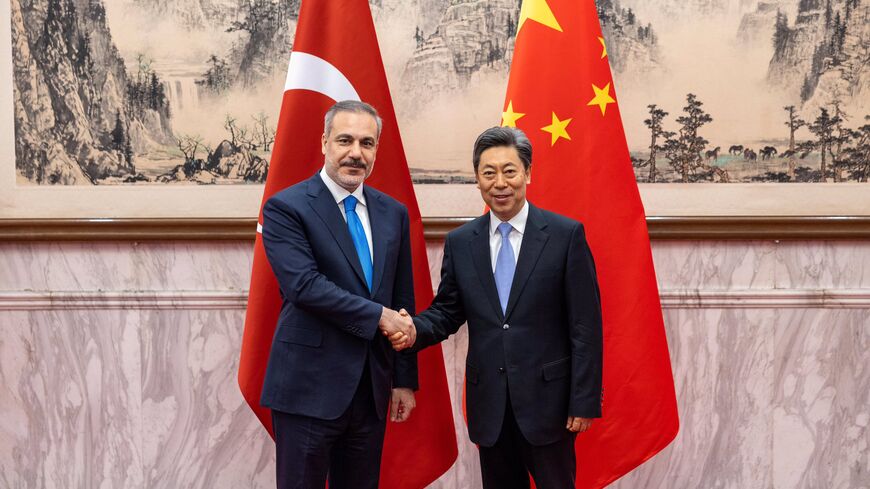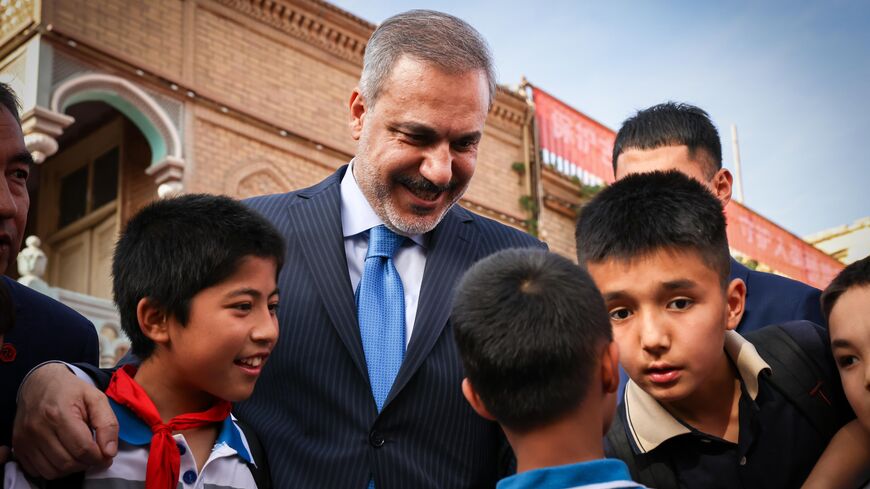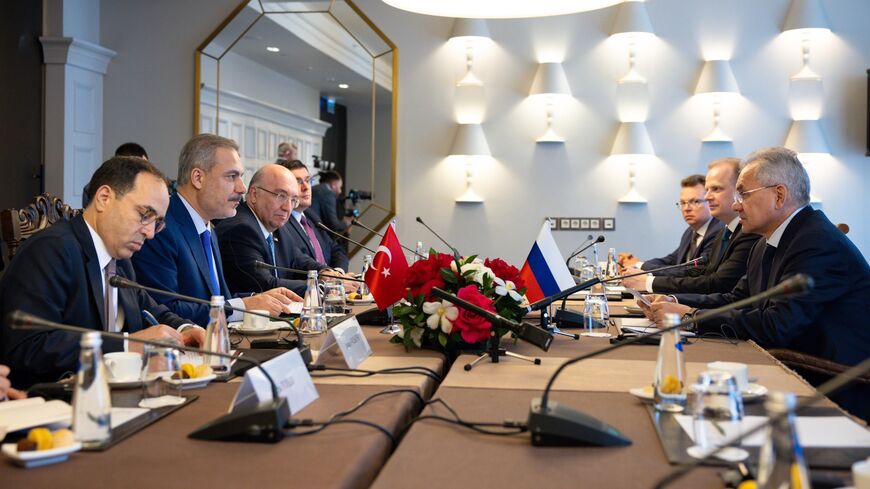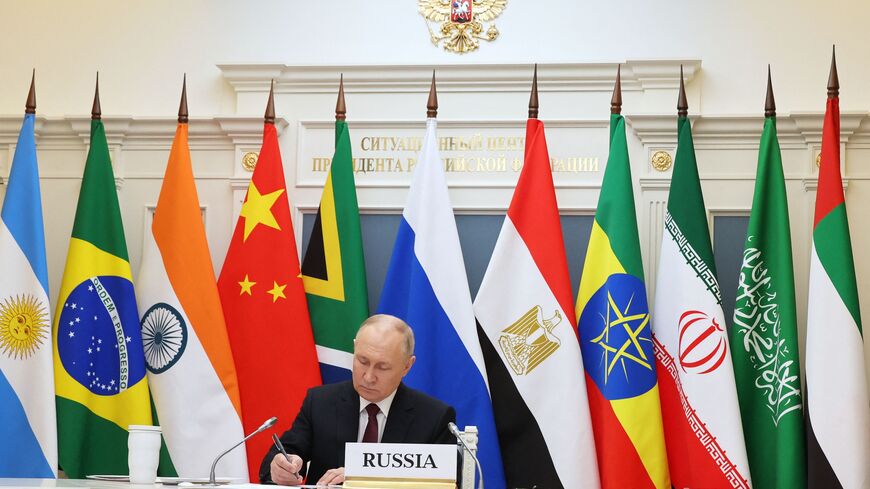In China, Turkey’s Fidan says he plans to attend BRICS meeting in Russia
The top Turkish diplomat says his country explores new opportunities with BRICS

ANKARA — Turkish Foreign Minister Hakan Fidan will attend the China-led BRICS+ meeting in Russia next week as Turkey explores new cooperation opportunities.
“While we have a customs union with the EU, we also explore new opportunities for cooperation with several partners in different platforms such as BRICS,” Fidan said in Beijing on Monday. “I look forward to attending the BRICS+ meeting in Russia next week.”
Fidan’s comments on the China-led bloc came during an address at a Beijing-based think tank as part of his three-day official visit to the Asian powerhouse. BRICS+ is expected to have a foreign ministers meeting in Western Russian city of Nizhny Novgorod next week. Turkish President Recep Tayyip Erdogan had expressed his desire to join the bloc in 2018, but has not repeated the suggestion since then. The bloc comprises China, Russia, India, Brazil, South Africa, Egypt, the United Arab Emirates, Ethiopia and Iran.
On the second day of his China visit, Fidan met with his Chinese counterpart, Wang Yi, as well as Vice President Han Zheng. On Wednesday, he is slated to travel to Urumqi, the regional capital of the Xinjiang Uyghur Autonomous Region — homeland of the Uyghurs — as well as Kashgar later Tuesday, marking the first high-level visit to the region since President Recep Tayyip Erdogan in 2012.
'Turkic Muslim cities'
Speaking at a joint press conference with Wang, Fidan stressed Turkey’s respect for China’s territorial and political integrity, but stopped short of referring the region as Xinjiang — the Chinese name of the region — describing Urumqi and Kashgar as "Turkic Muslim cities."
The two “serve as a bridge between China and the Turkic world, as well as between China and the Muslim world,” Fidan was quoted as saying by Turkey’s state-run Anadolu News Agency. “They are symbols of our historical friendship and neighborhood.”
“These cities are two ancient Turkic-Muslim cities that contribute to the cultural richness of China,” Fidan said.
The Chinese foreign minister, in turn, stressed the importance of “mutual respect for sensitivities” as well as “opposing interference by foreign powers in the internal affairs of our two countries.”
The United States, the European Union and much of the international community have charged that Beijing is oppressing its Uyghur minority. The accusations involve prolonged detention in so-called training camps in a bid to strip them of their Muslim identity, forced sterilization and sexual abuse. Beijing denies the accusations, claiming its actions are aimed at combating separatism and radicalization.
Erdogan was once an outspoken defender of Uyghur rights, accusing Chinese authorities of committing genocide against Uyghurs in 2009.
But he has dialed down his criticism of Beijing in recent years, wary of deteriorating ties with the global power and Turkey’s largest trade partner in Asia. Ankara is eyeing increased direct Chinese investment in the country to help its ailing economy. The trade volume between the two countries topped $47 billion last year.
Meanwhile, Fidan’s visit coincided with the 35th anniversary of the Tiananmen Square protests crackdown when Chinese security forces killed and injured thousands of anti-government demonstrators in 1989. A heavy security force has been deployed in the main roads leading to Beijing’s central square in a bid to prevent any public gatherings marking the anniversary, according to the Associated Press.







